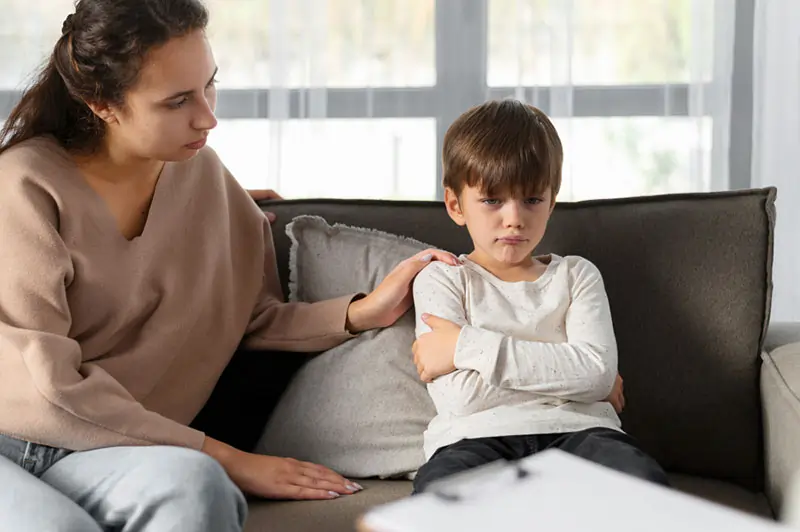How to Handle Antisocial Behavior in Kids
Antisocial behaviors are actions that harm others and flout social norms. These acts are usually intended to injure other people, damage property, defy authority and break laws in society. Such behaviour could be aggressive or non – aggressive. Children as young as 3 or 4 years may exhibit such behaviors.
Set clear consequences for actions
Right from the toddler stage, there are tangible ways to encourage social behavior and discourage anti-social behaviour. For example, a toddler can be given chocolate or given extra play time if she shares a toy with a friend. Similarly, something desirable can be withheld if the child hurts another. For example, playtime can be cut, or a dessert usually given after dinner can be denied. Such consequences should be clearly communicated to the child before the actions take place. For example, before a birthday party, the child can be told that if he behaves well and interacts with everyone in a civil manner, he can open the birthday present. Otherwise, he cannot.
Authoritative parenting style
Authoritative parents are supportive, warm and nurturing, but they set firm boundaries for their children. They do listen to the child’s viewpoints and validate them but do not always listen to them. They explain rules, discuss the rules and let the child know the reasons for such rules. They provide a structure and framework for the child’s daily life, and such a predictable structure can mitigate antisocial behaviour or prevent it from occurring in the first place.
Make them learn how to take control of their emotions
Most antisocial behaviour is because of sudden anger that needs expression. Children can be taught strategies to handle their anger. For example, they can be taught to say, ‘I am feeling angry now. Can we talk about this later?’ or if they can, just leave the place or drink some water when they feel angry. Older children can be encouraged to write down all the things they feel angry about usually and to recognize them as they happen. For example, a child may get angry every time a particular teacher scolds him for getting his homework wrong. Once he has identified this as a possible trigger, he can find acceptable ways of behaviour. He may say ‘I am sorry Mr. Wilkins. I will try to make it correct next time.’ instead of lashing out at the teacher.
Related: Helping Children Deal With Anger
Stress relief toys
These are toys and gadgets that can be used to relieve stress and restlessness. There are fidget toys such as slime balls, spinner toys, and squishy cubes and balls. In a stressful situation that usually makes a child angry, he can be taught to vent his anger on these toys. Stress balls are another useful toy. They are small balls made of soft clay or gel that you can squeeze repetitively. The repetitive squeezing action relieves stress and other negative emotions.
Related: Exhilarating Stress-Free Activities To Do With Kids
Spend time with the child
Parents giving individual attention to kids can help ward off any negative behavior. Attention should be one-to-one. Taking the child out for dinner, playing with him games which he is good at, and reading a story at bedtime are some of the activities that parents can do for the troubled child. Some children who exhibit anti-social behavior may have problems such as ADHD, in which case the child will not be able to attend to any task for an extended time. With such children, medical attention is needed. However, even such children will benefit greatly if the parents spend one-to-one time with them.
Give responsibility
This is a strategy that teachers can use in school. The child that is acting out can be given a position such as class monitor. The attention and the recognition that the child gets will give her good self-esteem, and the urge for negative behavior will be less. Even though it takes a lot of effort and tact on the part of the teacher, giving troubled children recognition for their good qualities goes a long way in correcting anti-social behaviour if it is mild and manageable.
Psychological treatment
Intensive counseling and problem-solving skills training are generally seen to be effective for the treatment of anti-social behaviour. Other options are cognitive behavioral therapy (CBT), family therapy and adolescent therapy. Parents can also get help from parent management training to remedy existing negative parenting issues.

